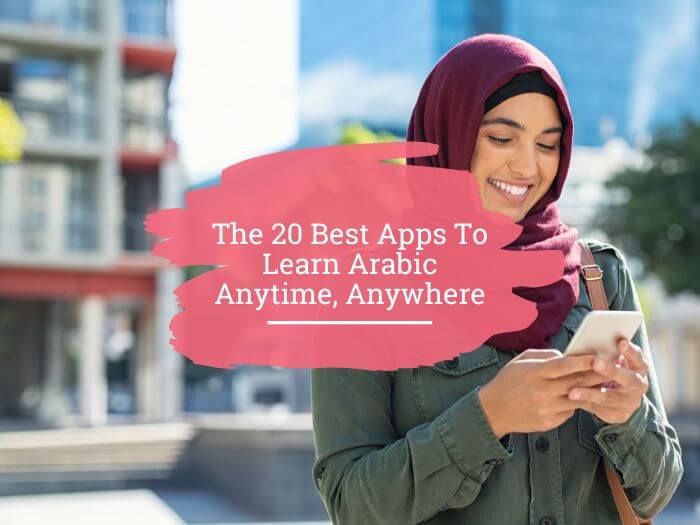These days, it feels like there’s an app for everything. And guess what? It’s no exception for learning Arabic!
Arabic isn’t an easy language to learn, which is why you’ll likely need to invest a lot of time and effort to become fluent. The good news is that language learning apps can help you do just that.
In this post, I’ll share with you some of the best apps to learn Arabic that you can download. With the help of some of these apps, I’m sure you can make learning Arabic both fun and effective!
Pro tip
By the way, if you’re thinking about learning Arabic, then I have some great news for you!
My course, Arabic Uncovered, teaches you Arabic through the StoryLearning® method! It’s fun, easy, and effective! Get your free 7-day trial here.
Table of Contents
What's The Best App To Learn Arabic?
But before jumping into my list of the 20 best apps to learn Arabic, it’s worth thinking about the kind of apps that work for learning any language.
Language learning can take a lot of time and energy. So it’s good to try and avoid using apps that are too flashy that might just waste your time.
Here are the best apps to learn Arabic (or any language):
- Content Apps: These are the apps that will help you be fully immersed in Arabic, with written content that you can read to learn new vocabulary, podcast apps to help you improve your listening comprehension, and more!
- Language Exchange Apps: These apps act as platforms for you to meet other people online so that you can do language exchanges and help each other learn new languages.
- Flashcard Apps: You’ve probably made flashcards before to learn new Arabic vocabulary. With flashcard apps, you can simplify this by focusing on just learning the new words, and not preparing the flashcards themselves.
Beyond these categories of apps, because Arabic has such a vast lexicon, I’d also recommend downloading and having on hand a few dictionary apps.
And if you’re interested in learning more points to keep in mind when choosing the best apps to learn Arabic, check out my post on language learning apps!
And with that said, here's the list of the 20 best apps to learn Arabic.
1 – Ling

Ling is an app that helps you learn Arabic from the basics in a fun and easy way.
Why is this a great app?
- You start with the basics, and slowly build up new vocabulary as you go through different lessons.
- Unlike learning with a textbook, you can learn new grammar by recognising patterns in different sentences.
- There are 5 different levels of units that you can work up towards over time, including beginner, intermediate, upper intermediate, advanced, and expert units.
- The lessons include interactive exercises and engaging activities, and you can test yourself regularly with quizzes built into the app.
- The app includes an interactive chatbot that helps you improve your Arabic pronunciation.
2 – Busuu
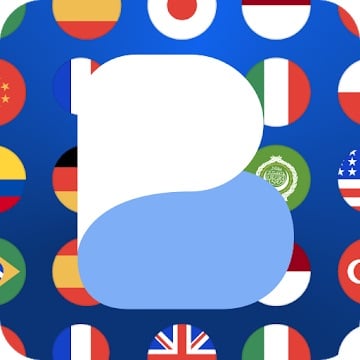
Busuu is a perfect app for learning Arabic if you’re keen on learning in short chunks of time and interacting with native Arabic speakers.
Why is this a great app?
- The lessons on Busuu are short, so it works well if you’re short on time but want to learn a lot.
- You can access a lot of interactive activities like games and quizzes to help you practice your listening, speaking, writing, and reading skills.
- You can connect with other native Arabic speakers so that you can practice speaking and get feedback on your writing.
- If you get the Premium version, you can access the app’s built in Study Plan, which allows you to set your own learning goals, track progress, and get recommendations.
3 – iTalki
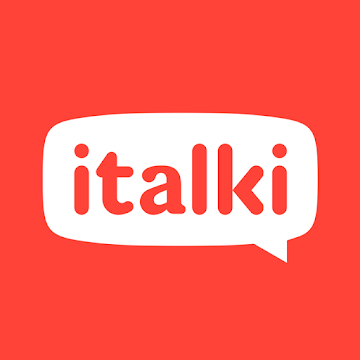
italki is a paid language exchange platform where you can connect online with Arabic teachers and tutors, as well as other people learning Arabic.
Why is this a great app?
- You can get 1-on-1 lessons from experienced Arabic teachers and tutors that are working online at a decent price.
- You can make learning Arabic fit your schedule, so you don’t need to delay learning Arabic if a nearby course isn’t at a convenient time or place.
- You can trial lessons at a discount with different teachers and conversation partners before picking the teacher or tutor you want to continue learning with.
- You can participate in the #ArabicLeague community to connect with other language learners and get advice.
4 – Drops
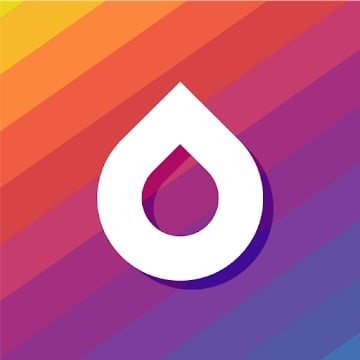
Drops is another app similar to Ling in that it relies on repetitive exposure to new words through a fun, game-like format, and calls itself the best language learning app on the go.
Why is this a great app?
- The app includes over 2,000 words that you can learn using spaced intervals, which is fantastic for retaining new vocabulary.
- You can acquire new vocabulary with visual illustrations – so if you’re a visual learner, this could be a great app for you!
- Learning with Drops is like playing a game, with lots of interactive challenges and games in short, 5-minute spurts.
- There’s a lot of useful Arabic audio content that you can access for practicing listening comprehension, such as Arabic TV shows and music.
5 – Duolingo

If you’ve ever attempted to learn languages through an app, then you’ve probably heard about Duolingo!
Duolingo is one of the largest language learning platforms today, and is popular for its fun, bite-sized lessons.
Why is this a great app?
- There are over 1,400 practical words and phrases that you can learn through the app with spaced intervals so that you are able to memorize the vocabulary you learn.
- The app has built-in reminders so that you can remind yourself to study and keep progressing.
- You can personalize the length of lessons so that they best fit your schedule and you set the tempo that you want to learn at.
- If you already know some Arabic and want to skip the basics, you can take a short placement test to start at your level.
- The Super Duolingo service means that you can get rid of the distraction of advertisements for a small fee.
6 – ArabicPod101
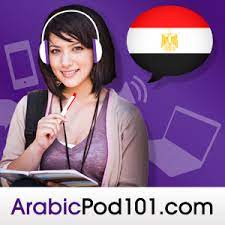
ArabicPod101 is an Arabic-specific language learning app, developed by the creators of the ArabicPod101 YouTube channel and podcast.
Why is this a great app?
- You can access lessons from real teachers, making the app less like a game with points and more like an actual class that you can follow.
- You can also access lesson notes after the lessons so that you can build on what you learned from the teachers.
- There are hundreds of video and audio recordings in Arabic that you can access.
- You can also download content so that you can use the app offline.
- Unlike many of the other generic language learning apps, the ArabicPod101 app gives you the option to learn words and phrases from the Egyptian dialect, and not just Modern Standard Arabic (MSA).
- Check out my review of ArabicPod101
7 – Rocket Arabic

Rocket Arabic pitches itself as the best language app for making you speak. Unlike other language apps, it has a huge focus on helping you practice your speaking skills.
Why is this a great app?
- As I mentioned just now, Rocket Arabic is a fantastic app for practicing speaking, with voice recognition software that helps you practice pronunciation and lessons that help you to practice speaking on the spot.
- There are thousands of words and phrases, as well as hundreds of lessons and materials that you can draw on to master Arabic.
- While there is a fee to signing up for Rocket Languages, you can take a free trial to test it out before fully committing. The good news is that signing up gives you lifetime access.
- Many of the lessons are also designed to share cultural knowledge about the Middle East and North Africa region.
8 – 50 Languages – Learn Arabic

50 Languages is a language learning platform that offers lessons in a total of – you might be able to guess – 50 languages.The website also operates an app.
Why is this a great app?
- The app gets straight to business, and is a simple platform without many buttons or gadgets, allowing you to completely focus on learning new words and phrases.
- You can access 100 lessons for free on real life topics, giving you a strong foundation in Arabic.
- The app includes audio recordings that you can listen to regularly to practice speaking like a native speaker.
9 – Rosetta Stone

It goes without saying that Rosetta Stone is a giant in the language learning business.
Starting out as a computer programme for language learning, Rosetta Stone now offers one of the best apps for language learning.
Why is this a great app?
- You can learn Arabic using the Rosetta Stone approach, which means lessons that are focused on real-world conversations and contextualized practice.
- The app includes bite-sized lessons that you can access whether you’re online or offline, making it great if you’re trying to minimize distractions or if you’re in an area with limited connection.
- The app has built-in speech recognition technology that helps you improve your accent.
- The app focuses in on learning Modern Standard Arabic (MSA) to help you build a foundation in Arabic before branching out to learn one of the Arabic dialects.
10 – LingQ

LingQ is an app that gives you access to thousands of hours of real-world audio and written content, making it one of the best apps around for exposing yourself to Arabic in real-world situations.
Why is this a great app?
- You can learn at your own pace and set your own preferences so that the content, materials, and courses are personalized to you.
- There are heaps of material in Arabic in its library from real-world situations, including blogs, Arabic books, Arabic podcasts, news articles, and videos.
- You can pick and choose content based on your interests, whether that be the news, entertainment, sports, culture, or more.
- You can create a database where you look up and save new words and phrases so that they are readily available to you.
- The app uses spaced repetition, and includes algorithms to help you learn words and phrases that you are having trouble with.
- The app also gets you access to other Arabic learners and tutors in the Arabic Forum LingQ Community.
11 – Pimsleur
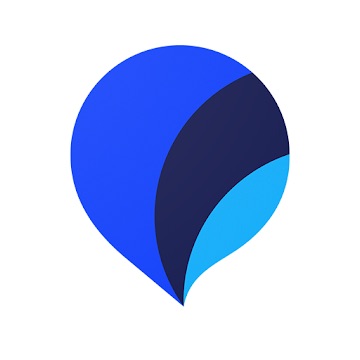
Pimsleur is another giant in the language learning business, and employs the Pimsleur Method to help you intuitively process new vocabulary and grammar, with a large focus on audio.
Why is this a great app?
- Pimsleur offers three different Arabic courses: Modern Standard Arabic (MSA), Egyptian, and Eastern (Levantine), which can make it appealing for prospective Levantine Arabic learners since the app options for Levantine Arabic can be more limited.
- All of the lessons are framed around simple, real-life conversations.
- The audio lessons support you to participate in conversations yourself to practice speaking.
- You can teach yourself to read Arabic through the Pimsleur Method’s phonetic approach to reading.
- There are also lots of other resources and materials to support you in reviewing the audio lessons, including flash cards, bite-sized audio, and quizzes.
12 – Memrise
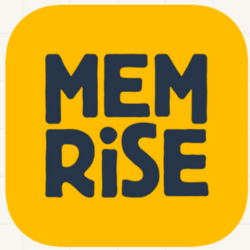
Memrise is a flashcard app, and includes flashcard sets with audio from a range of institutions, teachers, and independent tutors for mastering Arabic.
Why is this a great app?
- There are hundreds of different flashcard sets that you can use for learning Arabic based on your own interests and language learning goals.
- If you're learning Arabic through a course, there's a good chance that the flashcards from your textbook are already uploaded as flashcard sets on the app.
- You can find flashcard sets for different dialects of Arabic, including the more commonly-taught dialects like Egyptian, as well as less commonly-taught dialects like Iraqi or North African (Maghrebi).
- You can set the pace for how quickly you want to learn.
- If English is not your native language, then you might be able to find Arabic courses that are taught from your own language
13 – Tandem

Tandem is an app that allows you to do language exchanges and practice speaking with native speakers.
Why is this a great app?
- You can meet language partners through the app and set up conversations with them during times that work for both of you.
- If you’re having difficulty setting up an exchange due to language barriers, then the app’s built-in translation feature allows you to automatically translate messages from language partners into English.
- You can do language exchanges in the ways that work for you, whether it be through video calls, audio, or texts.
- The app has built in tools that allow you to correct each other to improve.
14 – Hans Wehr App
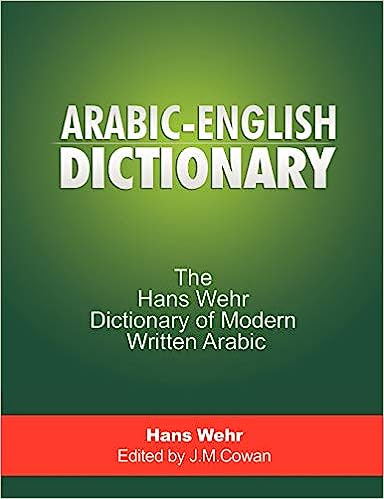
If you’ve enrolled in an Arabic course, then there is a pretty good chance that you’ve heard of the Hans Wehr Dictionary.
The dictionary is more like an almanac, and allows you to look up words based on its root letters. You can also download a Hans Wehr App.
Why is this a great app?
- The Hans Wehr Dictionary is an essential dictionary for learning Arabic, especially as you build up your skills and start taking intermediate or advanced level classes.
- The app makes it a lot easier and quicker to look up words that you don’t know compared to the physical book.
- You can practice extracting the different roots of words, which will enhance your vocabulary and grammar in Arabic in the long-term.
15 – Beelinguapp
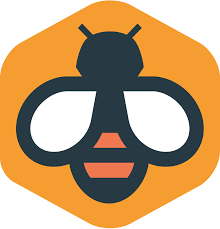
Beelinguapp helps you learn Arabic primarily through audiobooks, recognizing the importance of reading and native narration for acquiring new languages naturally.
Why is this a great app?
- You can learn to become fluent in Arabic by reading a text in both Arabic and your own native language side by side, allowing you to pick up on new vocabulary and grammar rules without studying through a textbook.
- The reading materials are not made up for the app, but from real books, stories, and real-life situations, making the content relevant for daily life.
- The approach is similar to the StoryLearning method, which is all about learning languages through the power of story. Check out my Arabic course!
16 – Clozemaster

Clozemaster is the perfect app for complementing learning with a fun set of language learning games, and particularly targets intermediate and advanced learners.
Why is this a great app?
- Many of the language learning apps target beginners, but Clozemaster specifically focuses on helping you improve your Arabic so that you can go from the intermediate to advanced and fluent levels.
- The app includes lots of games that help you learn in context by asking you to fill in sentences with missing words, also known as a cloze test or a cloze deletion test.
- You can acquire new vocabulary not through memorizing flashcards, but through exposing yourself to them in context.
- You can use built-in tools that help you track your progress in learning Arabic.
17 – LanguaTalk
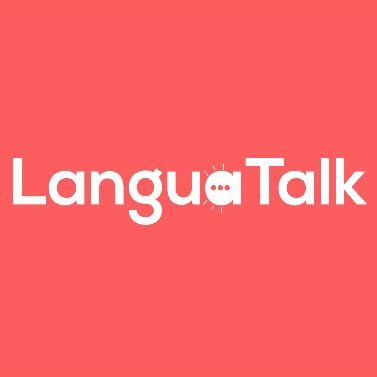
LanguaTalk isn't exactly an app (well not yet at least) but you can access it on any device in order to find the best Arabic tutors online.
Why is this a great app?
- You can pick the right tutor for you based on reviews from other users and short video presentations from prospective tutors.
- LanguaTalk only hires the top 10% of tutors, so you can be sure that you're learning with someone competent who can help you improve.
- Your tutor will personalise lessons to your needs.
18 – TenguGo Arabic Alphabet App

TenguLogi is an app that specializes in teaching scripts that are not in the Latin alphabet, such as Japanese, Chinese, and Korean.
Like the other TenguLogi apps, the TenguGo Arabic Alphabet app teaches you how to read the Arabic alphabet.
Why is this a great app?
- If you’re not already familiar with the Arabic alphabet, then the TenguGo app helps you learn the alphabet in an easy and simple way.
- The app breaks down the basics of how to recognise and read letters in Arabic, and teaches you the different forms of letters depending on their position in the word.
- The app includes audio samples from native Syrian and Iraqi Arabic speakers to help you learn the alphabet.
- You can access lots of lessons, charts, quizzes, and flashcards to help you learn the alphabet.
- The app also shares stroke animations for each letter to help you learn how to write correctly in Arabic.
19 – Promova
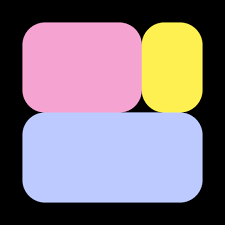
Promova is an interactive flashcard app that helps you learn and retain new vocabulary in Arabic through repetitive exposure.
Why is this a great app?
- You can set the pace for completing fun lessons so that you can learn new words and grow your vocabulary.
- You can get regular notifications to remind you to stay on track with your Arabic learning goals.
- You can focus primarily on learning new words, without getting too deep into trying to learn complex grammar rules.
- The app includes bite-sized quizzes that you can take every day to remind you of the new words that you learned.
- The app includes lessons on useful phrases and expressions that Arabic speakers use in daily life.
20 – Bravolol Learn Arabic

Bravolol is a specialized dictionary and phrasebook that allows you to learn new vocabulary and phrases.
Why is this a great app?
- There are lots of useful Arabic words and phrases that are helpful to know if you are trying to get around in an Arabic-speaking country.
- All of the words include voice and pronunciation recordings by native speakers.
- You don’t need to be connected to the internet to use the app, which can make it a useful tool if you’re travelling and without an internet connection.
- You can search words that you don’t know to quickly find out their meanings.
Best Apps To Learn Arabic
Now that you’ve gone through this list, which apps are you thinking of trying to help you to learn Arabic?
For starters, there isn’t any rule saying that you can only use one app at a time. You can try the ones that sound like a right fit for you and test them from there.
In general though, you’ll probably want to download an app or a few apps that expose you to content in real life situations, allow you to start speaking right away, or support you in learning new vocabulary through spaced repetition principles.
If you can tick all three of these criteria in a single app, then you’re all set! But otherwise, the best thing to do is to keep in mind some of the key principles of what makes a language learning app effective when picking an app to use.
And regardless of what app you decide to use, the most important thing is that you stay consistent. After all, the best way to learn a language is to use it regularly.
Good luck! And keep it up!

Olly Richards
Creator of the StoryLearning® Method
Olly Richards is a renowned polyglot and language learning expert with over 15 years of experience teaching millions through his innovative StoryLearning® method. He is the creator of StoryLearning, one of the world's largest language learning blogs with 500,000+ monthly readers.
Olly has authored 30+ language learning books and courses, including the bestselling "Short Stories" series published by Teach Yourself.
When not developing new teaching methods, Richards practices what he preaches—he speaks 8 languages fluently and continues learning new ones through his own methodology.
